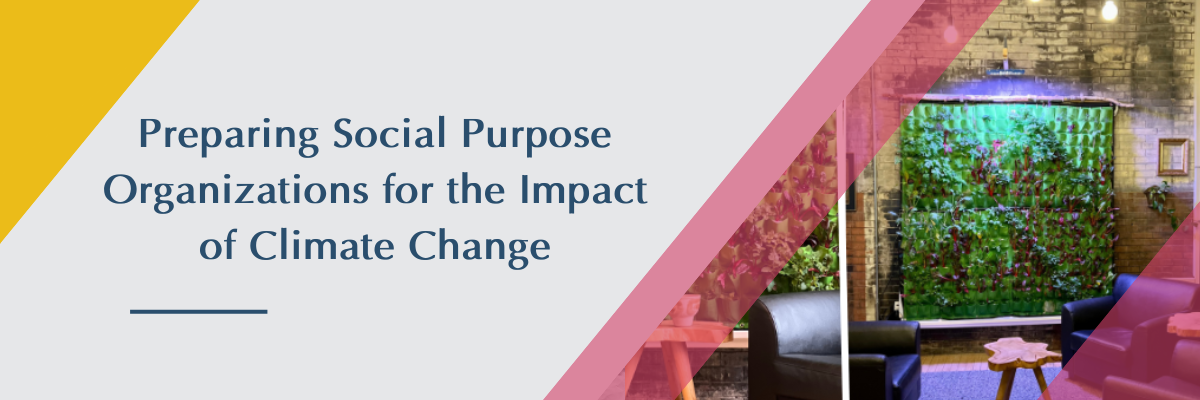
The effects of climate change are widespread, leading to long-term social, economic, and environmental impacts. For mid-sized Canadian cities, some of the major environmental impacts include food insecurity, extreme weather, and environmental pollution.
How does climate change intersect with social issues in an urban context? What can social purpose organizations (SPOs) do to better prepare to changes in our natural environment? How can SPOs lead the way in climate action initiatives?
SDG Cities worked with Western University to answer those questions. Through a research partnership with the Master of Environment and Sustainability (MES) program, a team of graduate students identified several impacts of climate change on social purpose organizations through an intersectional analysis of socio-environmental issues in urban areas.
"The research provided a deep understanding of how existing and future environmental issues will impact social organizations and which climate impact SPOs will experience the most."- Research Team
The final report includes recommendations on how these organizations can incorporate climate action into their programming to inform and prepare SPOs for the effects of climate change. The researchers reached out to SPOs using them as case studies of SPOs that have implemented programming that simultaneously addresses social and environmental issues.
From left to right: Thurkkha, Luis, Rideau and Preet.
On June 15, 2023, SDG Cities hosted a Community Learning Series to share the findings from the research team: Rideau Haskins, Kara Proeschel, Thurkkha Thayalalingam, Preet Jassal and Alexandra Keesmaat Freeman. The workshop was tailored to individuals who work in the social sector and nonprofit organizations addressing social issues addressing poverty, houselessness, food insecurity and racism among others.
Learn more about the team members here
Rideau Haskins | Project Lead
Rideau has a Bachelor of International Development and Globalization and a Minor in Feminist and Gender Studies, and leadership experience with multiple social purpose organizations. Rideau has the expertise to analyze environmental issues through an intersectional lens. Learn more about the team:
Kara Proeschel | Communications Liaison
Kara has a Bachelor of Arts Honors degree in Sociology with a minor in Indigenous Studies. She is passionate about incorporating isolated communities and perspectives into environmental problems and solutions.
Thurkkha Thayalalingam | Research Coordinator
Thurkkha has a Bachelor of Science in Environment & Health, Biodiversity & Conservation Biology, Physiology, and a certificate in Sustainability Pathways. She is an expert in linking environmental issues to human health and well-being.
Preet Jassal | Research Coordinator
Preet has a Bachelor of Science in Biology from Western University. She is an experienced researcher with refined analytical skills from working on various quantitative and qualitative data projects.
Alexandra Keesmaat Freeman | Case Study Lead
Alexandra has a Bachelor’s Degree in Global Justice from Western University with a minor in Psychology. She is passionate about bringing her global justice background to the sustainability field.
During the first half of the workshop (see recording above) Preet, Rideau and Thurkkha presented:
-
The linkages between climate change and social issues such as poverty, racial inequalities, mental health, climate migration, and food access.
-
Case studies with social purpose organizations that have implemented socio-environmental intersectional programming who were researched and interviewed for this report.
-
A series of recommendations regarding how Canadian social purpose organizations can incorporate climate action into programming and mitigate the negative impacts climate change has on their operations.
In the second half of the workshop, participants were invited to reflect about their own organizations, how they are currently responding and what else they can do.
The full report, five case studies and an educational primer are available as free resources on our Public Library in this website:
Article originally posted on https://www.sdgcities.ca


